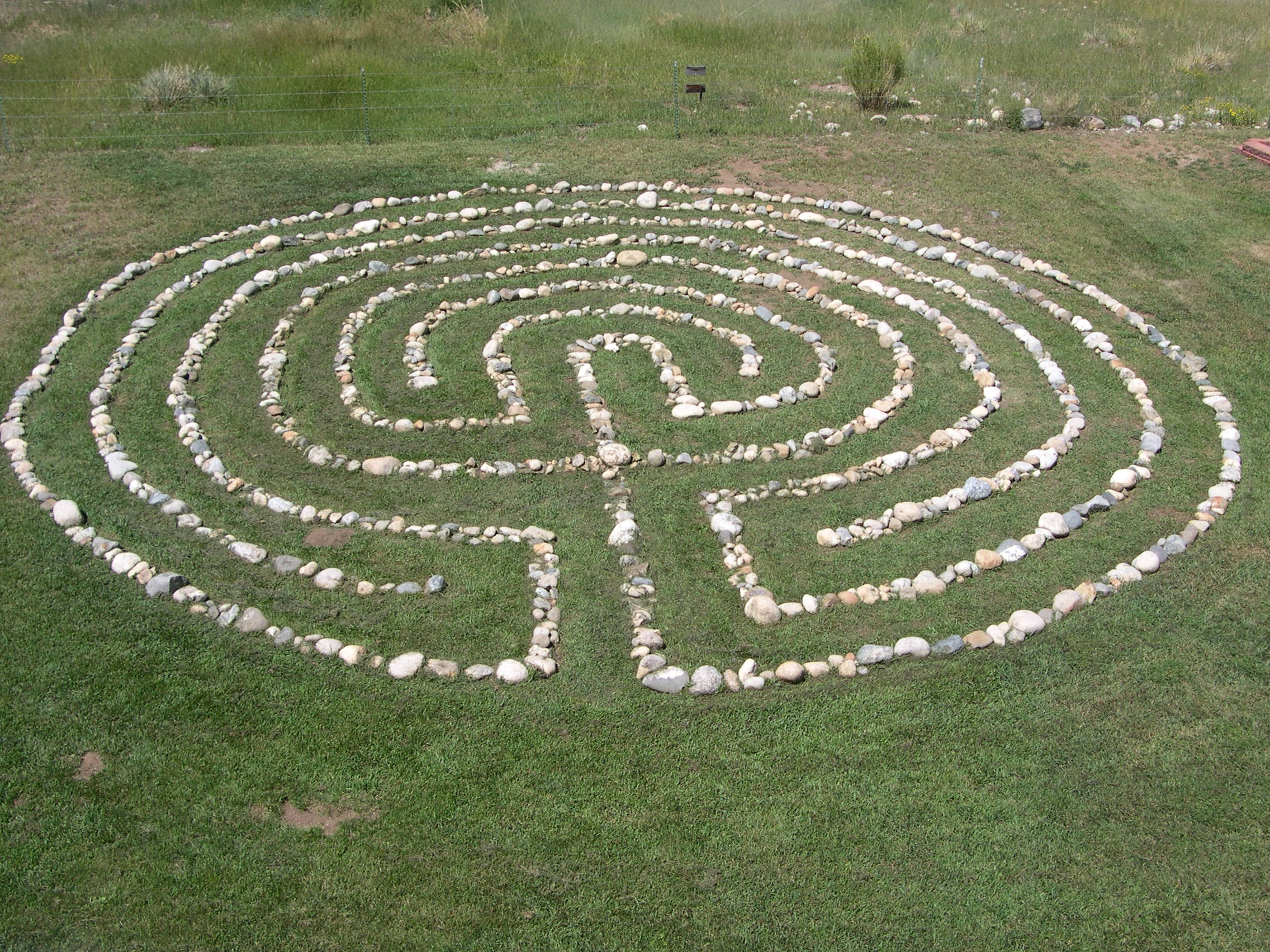This week I finished the worship module on the pioneer mission leadership training course. We ended by thinking about communion. It is a ritual I have always found incredibly meaningful with the power to sustain and comfort beyond the mere outward signs of bread and wine. As we celebrate Easter, it becomes a yet more potent symbol of Christ’s love and sacrificial death. However, how do we make this ancient practice that Jesus commanded us to do “in remembrance of Him”, relevant in a largely secular and post-modern society?
In the Anglican tradition, worship reaches a crescendo with communion and before it is administered there is a Eucharistic prayer that seeks to encapsulate the purpose and significance of this rite. I therefore decided to have a go at writing my own, in an attempt to apply some of my reading. This included discussions about how far Christians should reflect the surrounding culture so that it is appropriate and meaningful, while holding in tension the need to critique society’s values when they are at odds with the message and methods of Christ. Alan and Eleanor Kreider in their book ‘Worship and Mission after Christendom’, refer to this as the indigenizing and pilgrim principles (p.76). In response to this, I began to think about what it means to share a meal when our houses are no longer built with the space for a dining table and each member of the household eats when it suits them from a tray on their lap in front of the TV.
I have also been reading a lot about shame. (I know, I am really fun to hang out with!) Alan Mann in his book ‘Atonement for a Sinless Society’ sees communion as a wonderful opportunity to bring our personal stories in dialogue with the gospel story. It is here we can find the hope of reconciliation within ourselves as well as with one another in community and the ultimate ‘Other’ who is God. However, Steve Pattison in ‘Shame: Theory, Therapy, Theology’ reminds us that much of the liturgy and practice of the church actually re-enforces shame and that it has been used as an effective means of control by religious hierarchies. So how might I compose a prayer that expresses the liberation from shame that Christ won for us and avoid words that compound our sense of unworthiness to know love and belonging?
Well here is my attempt! And before you throw your hands up in horror, I realise that it probably breaks canon law and the liturgical police might come knocking. That said, it is my creative attempt to ground some of my thinking. I believe that if our faith is to be real and alive with new possibilities we have to wrestle with theology. Mission is, in my opinion, the best motivation for just this kind of experimentation and risk taking. If we don’t work harder and smarter at communicating the salvation story of Jesus for our own time and context the statistics show there will be no church in the UK in a hundred years time. So what treasures in your tradition could you re-frame and re-imagine to enable those outside your church to encounter Christ in a way that makes sense while remaining true to the basic tenets of the faith? It’s a challenge. But the rewards are worth all our soul-searching, mistake-making and frustration as it is in this process we are changed and re-engaged with God in surprising and exciting ways.
Screen Eucharist
The Lord is here
Our TV dinner is served
Lift up your hearts
Shielded to hide the wounds and scars
Let us give thanks to the Lord our God
Because you have sufficiently engaged our interest for the time being
We sit before you, side by side, isolated and distant.
Hoping to be distracted, entertained, transported to an alternative existence.
We eat without tasting, we gather without noticing, locked in a conversation that takes place between our ears.
Yet the God-man Jesus invites us to dine with Him tonight.
A table has been laid and He waits for us to take our place beside Him.
A banquet has been prepared and our favourite dishes are set before us.
He wants to know us. He is curious about our thoughts, preferences and dreams.
For through Him all experience of life, love and the created world was made possible.
We are a reflection of His goodness and embodied potential for newness.
We are so grateful that because He practised what He preached to the point of dying to maintain His authenticity, we don’t have to live up to the expectations of our ideal self.
We can be free to reveal who we really are and find that we are worthy to be loved by God and those with whom we long to be in relationship.
Even death on a cross could not stop Him fulfilling his purpose and He rose to a new life.
We thank you that this means, we too can look forward to our pain and loss being transformed into faith and hope if we choose to trust Him in vulnerability.
Jesus returned to Heaven so He could advocate on our behalf but He sent us a helper, the Holy Spirit, who gives us divinely inspired visions and insights to encourage and direct us.
Because of all that has been done for us in Jesus Christ, we can join with angels and all those who have gone before, praising God and saying:
Holy, holy, holy Lord
God of provision and presence
heaven and earth are full of your glory
Hosanna in the highest
Blessed is the one who comes in the name of the Lord.
Hosanna in the the highest.
May we live an integrated life where we are at one with ourselves and actively looking to make the most of every opportunity to partner with you in bringing peace, healing and justice to the spheres where we have influence, as Christ demonstrated for us.
Who in the same night that he was betrayed with a kiss,
took bread, gave thanks, broke it and shared it amongst his friends, saying,
“Take, eat; this is my body which is given for you;
do this in remembrance of me.”
In the same way, after supper he took a cup and gave you thanks:
he gave it to them, saying,
“Drink this, all of you;
this is my blood which marks a new relationship between humanity and the divine,
it removes all fears, regrets and hurts you have inflicted on yourselves and others, that has kept us from one another.
Do this, as often as you drink it,
in remembrance of me.
Christ has died
Christ is risen
Christ will come again
So as we remember the freedom and healing Christ offers us, we look forward to a day when He will return and restore all creation to beauty and wholeness.
Until then turn us from the impassive screen to see your reflected glory in the eyes of those we keep at arms length.
Help us risk intimacy and build community such that the value of relationship is displayed and we show how dreams of a better and fairer world become reality when we live and work together in unity, diversity and mutuality.
We invite your Holy Spirit so this bread might become your body which sustains us and the wine your blood that reconciles us.
Empower and motivate us with your love.
Give us the strength to bear our suffering and disappointment.
Keep us discontent with living vicariously through the shallow and distorted image of ‘the good life’ as portrayed by celebrities.
And we look forward to coming home, where we are safe and loved, honest and fulfilled.
For it is only through our loving Creator, redeeming Son and enabling Spirit we can be assured that one day our longing will cease and all we have desired and glimpsed will be known in full.
Amen
 It’s been a really busy Summer but I did manage to get 10 days in the sun on the island of Mallorca. My favourite thing when I’m holiday is to spend hours in the sea. I don’t so much swim as just sort of float about. But for me, this is actually a spiritual experience! I feel really close to God when I am far out at sea, distant from everyone else, allowing the waves to carry me where they will. As I am buoyed up by the salt water, rising and falling with the tide, I feel held. Yet at the same time I am totally free to go where I want and to explore the limits of the distant horizon, as well as of my own strength and tenacity.
It’s been a really busy Summer but I did manage to get 10 days in the sun on the island of Mallorca. My favourite thing when I’m holiday is to spend hours in the sea. I don’t so much swim as just sort of float about. But for me, this is actually a spiritual experience! I feel really close to God when I am far out at sea, distant from everyone else, allowing the waves to carry me where they will. As I am buoyed up by the salt water, rising and falling with the tide, I feel held. Yet at the same time I am totally free to go where I want and to explore the limits of the distant horizon, as well as of my own strength and tenacity.

 Last weekend I was on a ‘first-time retreat’ at Ham Convent. It was a wonderful weekend. There was just the right amount of input from the sisters suggesting different ways to pray creatively, combined with hours of uninterrupted silence to explore the beautiful grounds in the presence of the divine. I slept a lot, went to some of the services in the chapel and received numerous grace-filled encouragements from my Creator.
Last weekend I was on a ‘first-time retreat’ at Ham Convent. It was a wonderful weekend. There was just the right amount of input from the sisters suggesting different ways to pray creatively, combined with hours of uninterrupted silence to explore the beautiful grounds in the presence of the divine. I slept a lot, went to some of the services in the chapel and received numerous grace-filled encouragements from my Creator. If I ever make it on desert island discs the one question I already know my answer to is the book I would choose. I first read Jane Eyre when I was 11 and auditioning for the part of Adele in a local, amateur dramatic production. I love it and clearly I am not alone! There seems to be an almost annual reworking of this classic for either the small or big screen and decent audiences are practically guaranteed.
If I ever make it on desert island discs the one question I already know my answer to is the book I would choose. I first read Jane Eyre when I was 11 and auditioning for the part of Adele in a local, amateur dramatic production. I love it and clearly I am not alone! There seems to be an almost annual reworking of this classic for either the small or big screen and decent audiences are practically guaranteed.



